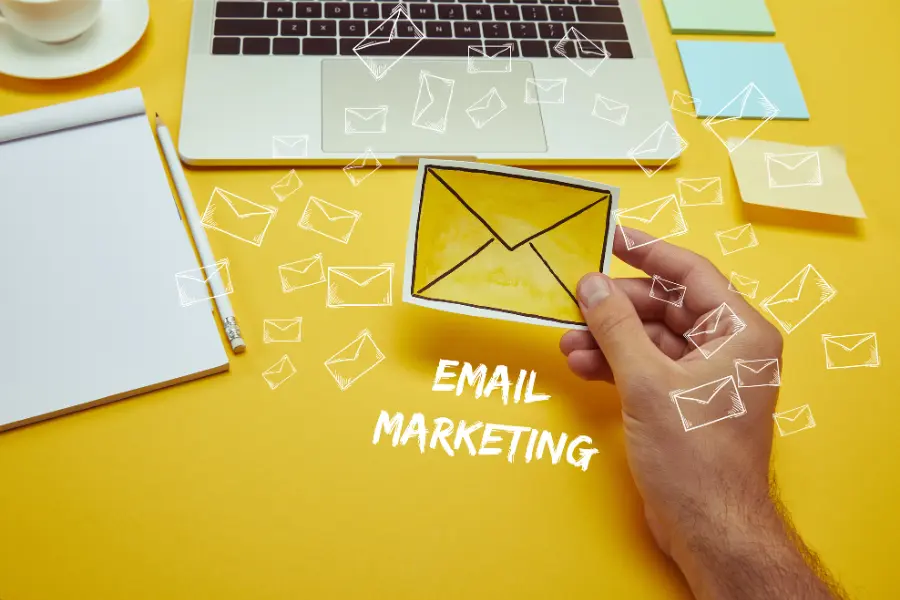How Automation Enhances Personalised Email Marketing Campaigns for Engagement
Email marketing remains a powerful tool for businesses to connect with their audience, but to truly stand out in crowded inboxes, personalization is key. Automation has revolutionised email marketing by enabling brands to deliver highly tailored content at scale. This blog explores how automation enhances personalised email marketing campaigns, driving engagement and fostering stronger customer relationships.

The Importance of Personalization in Email Marketing
Personalization in email marketing involves tailoring content to meet the specific needs, preferences, and behaviours of individual recipients. It goes beyond addressing the recipient by name; it's about delivering relevant content that resonates with each subscriber. Personalised emails not only capture attention but also drive higher open rates, click-through rates, and conversions compared to generic campaigns.
How Automation Facilitates Personalization
- Segmentation: Automation tools allow for dynamic segmentation based on subscriber data such as demographics, purchase history, browsing behaviour, and engagement levels. Segmented lists enable targeted messaging that speaks directly to the interests and needs of different audience segments.
- Behavioural Triggers: Automation platforms can trigger emails based on specific user actions or behaviours, such as abandoned carts, website visits, or email opens. These automated triggers ensure timely and relevant communication, increasing the likelihood of engagement.
- Dynamic Content: Automation enables the insertion of dynamic content blocks within emails. These blocks can change based on subscriber data, ensuring that each recipient sees content tailored to their preferences or past interactions.
- Personalised Recommendations: Using machine learning algorithms, automation platforms can analyse user behaviour to generate personalised product recommendations. This feature is particularly effective for e-commerce businesses looking to cross-sell or upsell products based on individual customer preferences.
Benefits of Automated Personalization in Email Marketing
- Improved Engagement: Personalised emails resonate more with recipients, leading to higher engagement rates. Whether it's addressing specific pain points, recommending relevant products, or acknowledging recent interactions, personalised content drives meaningful interactions.
- Increased Conversions: By delivering the right message to the right person at the right time, automation increases the likelihood of conversions. Personalised recommendations and tailored offers encourage recipients to take action, such as making a purchase or signing up for a webinar.
- Enhanced Customer Experience: Personalised emails demonstrate that brands understand their customers' preferences and care about their individual needs. This enhances overall customer satisfaction and loyalty, fostering long-term relationships.
- Efficiency and Scalability: Automation allows marketers to execute personalised campaigns at scale without compromising efficiency. Once set up, automated workflows can run continuously, delivering targeted messages to segmented audiences without manual intervention.
Case Studies of Successful Automation in Email Marketing
- Amazon: Amazon uses automation to send personalised product recommendations based on customer browsing and purchase history. These emails drive significant revenue by encouraging repeat purchases and cross-selling complementary products.
- Netflix: Netflix leverages automation to deliver personalised content recommendations, keeping subscribers engaged and reducing churn. By analysing viewing behaviour, Netflix sends targeted emails highlighting new releases or recommended shows.
Best Practices for Implementing Automated Personalization
- Collect Relevant Data: Gather and segment subscriber data effectively to create meaningful audience segments.
- Use A/B Testing: Experiment with different subject lines, content formats, and calls-to-action to optimise performance.
- Monitor and Adjust: Continuously analyse campaign performance metrics and adjust strategies based on insights.
- Compliance and Consent: Ensure compliance with data privacy regulations and obtain consent for email communications.
Automation has transformed email marketing from a generic broadcast tool to a highly personalised engagement engine. By leveraging automation platforms, marketers can deliver targeted messages that resonate with individual recipients, driving higher engagement, conversions, and customer loyalty. As technology continues to evolve, the role of automation in email marketing will only become more crucial, enabling brands to stay competitive in delivering personalised experiences that meet the evolving expectations of today's consumers.
Active Events
From Insights to Impact: Proven B2B Marketing Strategies for Scalable Success
Date: Feburary 28, 2025 | 7:00 PM(IST)
7:00 PM(IST) - 8:10 PM(IST)
2811 people have registered
Transition from Non-Data Science to Data Science Roles
Date: Feburary 27, 2025 | 7:00 PM (IST)
7:00 PM (IST) - 8:10 PM (IST)
2753 people have registered
Bootcamps
Digital Marketing Bootcamp
- Duration:4 Months
- Start Date:Feb 9, 2025
Data Science Bootcamp
- Duration:4 Months
- Start Date:Feb 9, 2025
